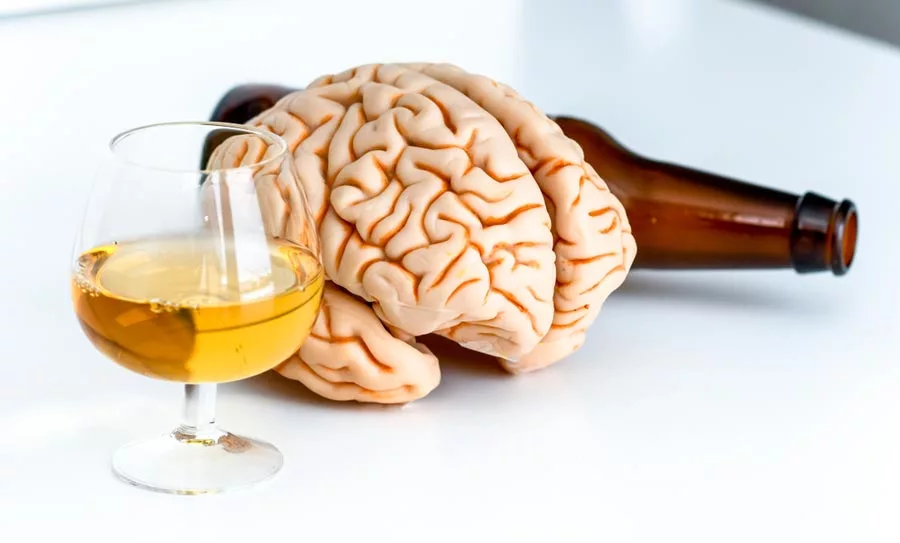Addiction Treatment and Reversing Damage from Drug Abuse
Long-term use of drugs and alcohol is associated with a wide range of adverse brain-related health outcomes, including cognitive decline and mental health disorders. The sooner a person receives treatment for their drug addiction, the sooner their brain will mend and recover from the impacts of drug use.
Drugs have a devastating effect on the human brain chemistry and overall health. The brain adapts to receiving the drug after prolonged use, affecting the brain’s chemical processes. Luckily, a wide range of effective treatment methods can help you recover from the effects of drugs.
The recovery period from drug addiction varies widely from person to person, depending on factors such as how long they were abusing drugs and whether they have any preexisting medical conditions or mental health disorders.
Read on to find out how long it may take for rewire brain from Addiction and to learn more about the connection between drug use and brain health!
The Effects of Drugs on the Brain
According to the National Institute on Drug Abuse (NIDA), addiction is a mental condition involving various neurological and psychological symptoms. Long-term treatment and recovery may be necessary due to the damaging effects of drugs on the brain.
The U.S. Surgeon General explains that the pleasure, stress, learning, decision-making, and self-control circuits in the brain are all negatively affected by drugs. Your brain’s basal ganglia is the brain’s reward system, which is responsible for feelings of pleasure and motivation. When you take drugs, this pathway activates, leading to euphoric feelings.
The extended amygdala is the brain regions that control stress responses. The National Institute on Drug Abuse claims that drug abuse causes these neural pathways to become more sensitive. This leads to stress responses like irritability, uneasiness, and anxiety.
Responsible for learning, decision-making, and self-control, the prefrontal cortex is the last section of the brain to mature and develop, usually in one’s twenties. Drugs’ effects on the prefrontal cortex may lead to compulsive behavior in people addicted to substances.
Different drugs have varying effects on the brain. Opioids like heroin, oxycodone, and Suboxone, for example, enhance the risk of overdose by altering fundamental physiological processes like heart rate and respiration. Inhalants can impair cognitive function, and cocaine can cause minor strokes in the brain, damaging brain nerves.
How Long Does It Take to Heal the Brain from Addiction?
Since drug use has varying effects on different individuals, brain recovery could take several weeks, months, or even years.
Factors that Influence the Time it Takes for the Brain Cells to Recover from Addiction

It is essential to note the time it may take for the brain to recover depends on various factors, such as:
- Type of substance abused
- Length of time suffering from the addiction
- Severity of addiction
- Presence of co-occurring mental health issues
According to the World Health Organization (WHO) guidelines, a person in recovery from marijuana addiction should expect to feel anxious and irritable for one to two weeks. This timeframe is significantly shorter than the recovery time required for benzodiazepine addiction, which can cause similar symptoms plus agitation, poor memory, and poor focus for up to eight weeks or longer.
Some people take the entire rehab treatment program to achieve complete abstinence, while recovery takes longer for others.
Specific treatments and lifestyle changes may speed up brain healing. These include total abstinence, exercising regularly, and maintaining proper nutrition. Moving from high-stress or hostile environments to a supportive drug rehab center would be best.
Treatment Options for Brain Rewiring After Addiction
Addiction is a complex brain disease that affects an individual’s physical, emotional, relational, and mental states. Substance use disorders (SUDs) can also trigger co-occurring disorders.
There are various management options available after completing rehab. Depending on your specific requirements and preferences, you can complete one or more of these programs individually or in combination with each other. Once you complete detox and withdrawal symptoms have subsided, you can start rewiring the brain’s physical and chemical dependency on substances through rehabilitation.
The brain can self-repair some brain damage, according to NIDA. This happens through neuroplasticity, a process where the brain forms new neural connections in response to positive environmental changes.
Drug rehab centers often use a medical detox and behavioral therapies to help clients recover from the damaging effects of drug addiction. Treatment providers may also use medications to reduce and reverse the effects of addictive substances on brain health.
Below are some of the most common treatment options:
Medical Detox for Alcohol and Drugs

Medical detoxification is the initial phase of treatment for those struggling with substance abuse. Your medical provider will conduct an assessment through diagnostic tests or brain scans like magnetic resonance imaging (MRI) to examine the severity of the addiction and brain structure.
Medication is used in detox to keep patients comfortable and limit the risk of health issues during drug or alcohol withdrawal. During detox at a detox center, medical practitioners and addiction specialists constantly monitor clients, ready to step in whenever necessary to make the detox process comfortable.
Some patients may be prescribed drugs and nutritional supplements that heal brain damage and alleviate withdrawal symptoms. Patients in recovery from alcoholism, for instance, may take vitamin B1 supplements to prevent memory loss, while those from opioid addiction may take methadone to correct biochemical brain irregularities.
Neurological damage caused by drugs can be treated with medicines like Deprenyl and Acetylcysteine.
Self-Management and Recovery Training (SMART Recovery)
The SMART Recovery program is an alternative to the 12-step and other religiously-based approaches for addiction recovery. It centers on a group of people sharing similar experiences in overcoming addiction.
Drug and alcohol addiction is widespread because these substances’ euphoric feelings encourage users to keep abusing drugs. The primary goal of SMART recovery is to provide an alternative to drugs and alcohol for maintaining motivation.
To maintain their drive for sobriety, clients in this program are urged to discover external sources of happiness, like a fulfilling career, good health, or supportive connections with family and friends. The brain is rewired to seek happiness from within rather than from external sources like drugs. Learning to control cravings and avoid relapse is another critical goal of the program.
Cognitive Behavioral Therapy (CBT)
Many people struggling with mental health disorders or addiction turn to cognitive behavioral therapy (CBT). The core tenet of CBT is the realization that one’s thoughts, emotions, and actions are interconnected.
Cognitive behavioral therapy aims to equip the patient with healthy coping mechanisms and counter-thoughts to the negative thought and emotion cycles. Despite CBT’s relatively straightforward theory, the process of retraining the brain to overcome addiction is lengthy.
Some people’s negative thought patterns are deeply ingrained habits that need to be chipped away at methodically with CBT techniques.
Issues Addressed in CBT Addiction Treatment
This helps in addressing the following aspects of a continuing addiction:
- Triggers that reinforce an individual’s urge to continue using drugs and alcohol
- Destructive or harmful thought patterns that lead to unwanted behaviors
Psychotherapy Based on Mindfulness

Mindfulness therapy is an increasingly popular option for those struggling with substance use disorder and co-occurring mental health issues like depression. Mindfulness is a philosophy that shares some similarities with cognitive behavioral therapy (CBT), with an added focus on being present with one’s thoughts.
When aware of their immediate environment, the person is taught to identify habitual, automatic ways of thinking and replace them with present-minded ones. This helps to divert attention away from the problematic thought processes while breaking them down.
Clients participating in a mindfulness-based therapy session are encouraged to:
- Consider mental processes as temporary occurrences rather than fixed truths
- Focus on the present to anchor themselves in reality
- Think “in the present” to help them avoid patterns of rumination
12-Step Programs for Brain Rewiring
Many people assume that 12-Step and religious-based programs are ineffective because they lack a scientific foundation. But research shows that the 12-step activities used to combat addiction can rewire the brain.
Consistently attending 12-Step meetings has been shown to strengthen neural circuits involved in decision-making and desire regulation. The environment modifies how the brain perceives the addiction, making it less likely that a person attending these meetings will relapse.
Individuals are less likely to engage in addictive behaviors if they model their actions after those they frequently meet. People find the environment at 12-step meetings to be inspiring, and it helps them stay committed to their recovery.
Most rehab facilities offer these types of care and can tailor a treatment plan to your specific needs. You can select a single option or a blend of multiple approaches to find the best fit for addiction recovery.
Get Professional Help for Substance Abuse and Addiction
While you can’t treat a substance use disorder by an act of will, you can gradually change your mind or rewire your brain and overcome this chronic condition. You will need personal determination to commit to addiction recovery through the help of medical professionals and evidence-based treatment options.
Call Best Rehabs In Arizona now for advice on the best treatment plan to help you beat your addiction and achieve long-term sobriety!

